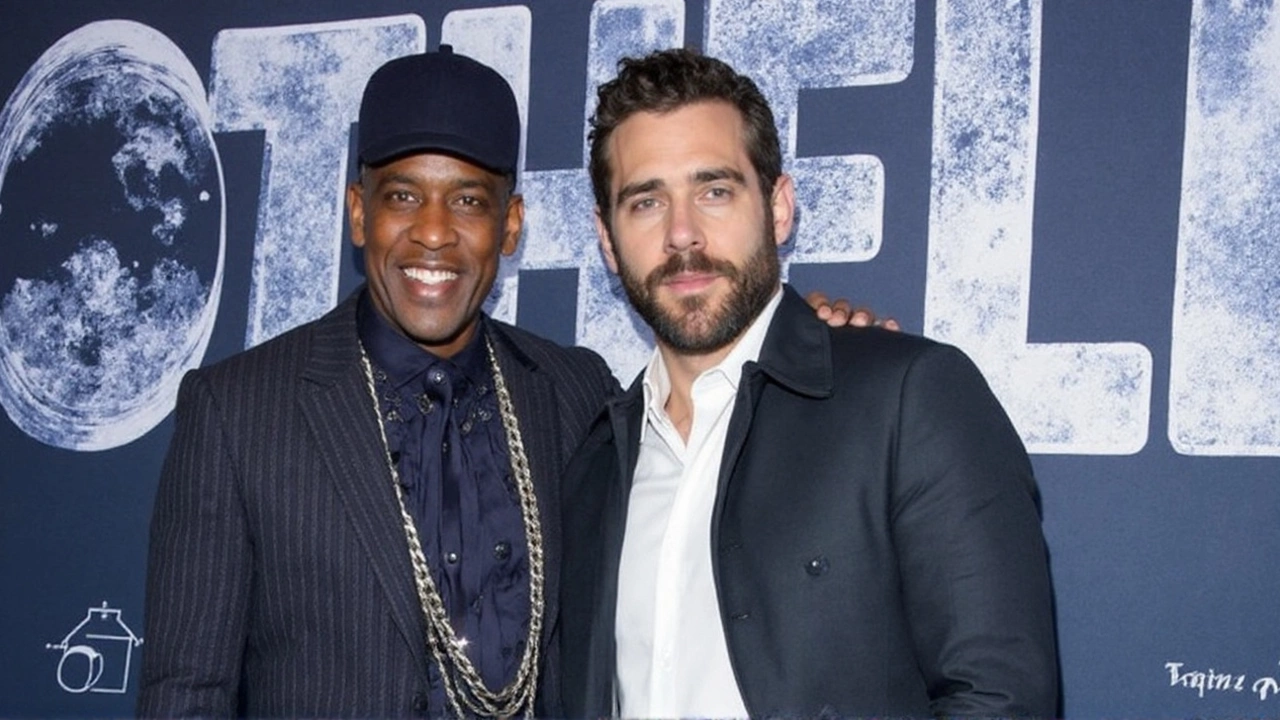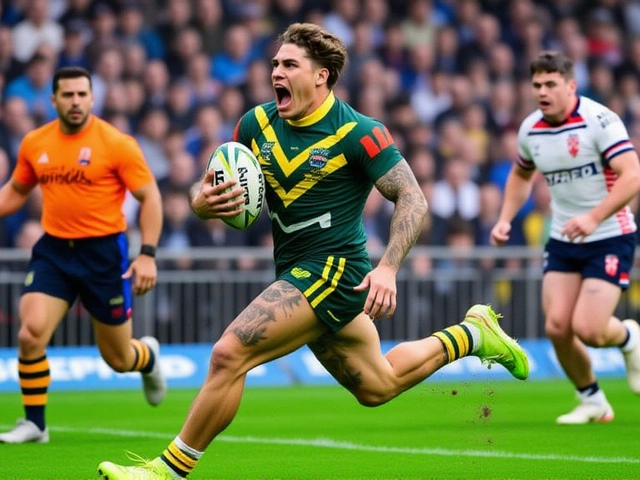A blockbuster cast, a billion-watt buzz — and a surprisingly muted “Othello”
A $1,000 ticket should buy you star wattage and a pulse. The new revival of Shakespeare’s tragedy at the Barrymore Theatre has one of those in abundance. Despite sold-out performances and hype thick enough to cut with a broadsword, the production headlined by Denzel Washington and Jake Gyllenhaal is meeting a frostier reality: critics call it handsome but hollow, polished yet emotionally distant.
Directed by Tony winner Kenny Leon, the staging leans on two marquee names and a spare visual world. That bet has not paid off with the press. Reviews point to a show that speaks the verse cleanly but rarely makes your stomach drop — crucial in a play where jealousy, intimacy, and manipulation need to feel like live wires.
Here’s the bottom line from early critical reaction: the performances are controlled, the staging is static, and the dramatic stakes feel curiously low for a story that ends in devastation. For a revival positioned as the Broadway event of the season, that gap between expectation and experience is the headline.
- Washington’s Othello is called restrained to a fault — measured line readings, cool temperature, limited emotional arc.
- An age gap between Othello and Desdemona (Molly Osborne) sharpens suspicion but drains romance, prompting awkward laughs where horror should land.
- Gyllenhaal’s Iago is intriguing in moments, yet the production doesn’t track how a disciplined general unravels so fast.
- Staging choices are described as static, with bare-bones design and some technical hiccups in key bedroom scenes.
- Premium pricing touching $1,000 has fueled questions about value given the muted dramatic impact.
The production is not a flop at the box office. It’s a sellout — proof that Shakespeare plus megastars still moves tickets. But on the artistic ledger, critics say the show plays safe when it needed to risk more.
Washington, 70, brings intelligence and authority to the role of the Moor of Venice, a general defined by discipline and status. Yet several reviews describe his performance as “competent but largely dispassionate.” In the climactic murder of Desdemona, the choice to go cold and matter-of-fact reads as emotional resignation rather than a soul cracking under manipulation. You hear the poetry, but you don’t always feel the rupture.
Age becomes a character here. Casting a much older Othello opposite a 27-year-old Desdemona isn’t new in itself, but this gap is one of the widest in recent memory on Broadway. Critics say it reframes the couple’s bond as paternal at times, which may explain why the bedroom confrontation reportedly triggered a ripple of uncomfortable laughter in pockets of the audience. The jealousy looks plausible; the romance, less so.
Gyllenhaal’s Iago arrives with the actor’s trademark precision and cool control. There’s craft in the language and a sleek exterior that suits a soldier with a secret engine. The sticking point, reviewers say, is the line the production fails to draw: how this “ramrod-straight” commander is rattled so thoroughly, so quickly. In stronger versions of Othello, you can almost measure each notch of corrosion as the lies land. Here, the slide from trust to murderous certainty feels under-mapped.
The chemistry between the two leads has been another talking point. The show’s central relationship — manipulator and mark — is a duet. When it sizzles, Iago’s whispers sound like truth and Othello’s doubts sound like destiny. When it doesn’t, you see the strings. Several critics argue you can see the strings.
Leon’s direction has been faulted for coasting on charisma and relying on clean verse speaking to do the heavy lifting. The staging is described as static, with scenes that park and talk instead of building pressure. If you’re going minimal — a valid choice with Shakespeare — rhythm and movement become your set. When those stall, you feel the emptiness.
Critics also flag “technical problems” in the physical staging, especially in the bedroom sequence that should be unbearable to watch. Instead of claustrophobia and dread, reviews report missed opportunities: staging that keeps the heat at arm’s length, lighting and blocking that don’t close the vise. In a tragedy driven by intimacy turned toxic, that distance matters.
The design and costumes are called “bare-bones.” That can work when the acting and direction pour meaning into the space. Here, the simplicity reads less like a sharp concept and more like a neutral setting that the performances never ignite. You remember lines, not images.
The supporting cast includes familiar Broadway names such as Danielle Brooks and Andrew Burnap (as Cassio), and critics note flashes of life around the edges. But the center of this play is a triangle — Othello, Desdemona, Iago — and when that core is undercooked, no amount of texture from the ensemble can fix the temperature.
Why this “Othello” feels thin — and what recent revivals got right
Othello is notoriously hard to stage in the 21st century. The text asks a lot. A Black military leader is celebrated for his service yet isolated by race; he marries into a powerful Venetian family and is undone by a subordinate who feeds his worst insecurity. If you rush the psychology or sidestep the play’s messier implications about race and power, the tragedy can feel schematic, even mechanical.
Recent high-profile productions showed two reliable paths. One is to map Othello’s insecurity early — subtle flinches at slights, a tiny crack when status is questioned — so Iago’s poison has something to grip. Another is to make the marriage so palpably alive that its collapse feels like a crime against oxygen. You can’t look away because you’ve been breathing with them.
According to reviews, this revival does neither with conviction. The romance between Othello and Desdemona rarely reads as flesh-and-blood love, which saps the later scenes of horror. And Othello’s slide from order to chaos isn’t tightly charted, which undercuts the sense that Iago is a master engineer of ruin. Without those rails, the engine wobbles.
There’s also the question of how to handle the play’s racial politics now. Many modern directors lean into the public-private split: Othello at full command in the council chamber, then smaller at home, navigating microaggressions and self-doubt. Others push the military world to the fore — chain of command, battlefield hierarchy — to show how Iago hijacks a general’s protocols and turns them inward. This staging, by several accounts, keeps those frames in soft focus.
Leon has a long history with star-led classics — he guided Washington to a Tony-winning turn in a 2010 revival of Fences and has repeatedly found ways to meet audiences where they are. That’s part of why expectations were high here. The bet seemed logical: pair two major film actors with a director who knows Broadway and let the language sing. But the production reportedly stops a step short of the messy questions the text demands.
Then there’s money. Broadway’s dynamic pricing regularly nudges premium seats into the stratosphere. Reports of tickets near the $1,000 mark for this show added to the microscope. When you ask audiences to pay luxury prices, you invite luxury scrutiny. That doesn’t mean star casting isn’t worth it; it means the experience needs to feel undeniable.
To the production’s credit, many reviewers praise the clarity of the verse. You can follow the plot without a cheat sheet. That accessibility matters, especially for casual theatergoers drawn by the names above the title. But clarity without torque only goes so far in a tragedy built on emotional whiplash.
If the age gap is the boldest interpretive swing here, it’s a swing that comes at a cost. The benefit is obvious: Othello’s fear of being made a fool by a younger wife reads as plausible. The drawback is just as clear: the love story looks abstract. Desdemona’s innocence and Othello’s tenderness become harder to stage when their pairing scans as paternal, not romantic. The result, critics say, is that some of the play’s most painful beats land off-target.
For audiences who buy a ticket — premium or otherwise — the experience will still have pleasures: the thrill of hearing Washington command a stage, the precision of Gyllenhaal’s speech, the comfort of Shakespeare’s music in the mouth of actors who can handle it. And the Barrymore’s intimacy lets you watch faces work, a small blessing in a show that often keeps the emotions under glass.
But the wider conversation this revival stirs is about how Broadway approaches Shakespeare now. Star vehicles draw crowds, no question. The challenge is converting that excitement into a version that feels necessary — not just a famous text recited by famous people, but a story crackling with present-tense danger.
Other recent revivals found that urgency by making the world of the play feel specific and pressured: a barracks where gossip spreads like wildfire, a governing council that treats Othello as both savior and outsider, a bedroom that shrinks into a trap. When those elements lock, the language becomes a blade. When they don’t, it’s a recital with an unhappy ending.
It’s telling that even cooler reviews still single out moments of beauty in the verse. Shakespeare gives you that for free. The job of a modern production is to earn the pain. This one — at least to critics — hasn’t cracked the code yet.
None of which means audiences won’t have their own take. Word-of-mouth on shows like this can defy the papers. And there’s a version of the story where, as the run settles, the actors find darker colors and the staging tightens. For now, though, the verdict is steady: the Othello Broadway revival is selling out, but it isn’t haunting people on the walk home.
That gap between box office and afterglow is the real drama at the Barrymore — a starry tragedy that, for many, still feels like one move away from breaking your heart.




